Curious about decentralized finance (DeFi) and wondering what all the buzz is about? Perhaps you’ve heard terms like “crypto wallet,” “hardware wallets,” or “DeFi wallets” tossed around and want to know what they mean. Well, you’re in the right place!
In 2024, DeFi wallets are more than just a trend; they’re a vital part of the crypto and DeFi landscape. Whether you’re a seasoned investor or just dipping your toes into digital assets, understanding DeFi wallets is essential.
This post will explore the best DeFi wallets, including hardware and software wallets, and uncover why they’re becoming popular for securing crypto assets. We’ll break down everything you need to know, from the most secure crypto wallet options to user-friendly interfaces.
So, grab a cup of your favorite beverage, and let’s dive into the exciting world of DeFi crypto wallets together!
What is a DeFi Crypto Wallet?
Decentralized Finance (DeFi) has shaken things up in the financial world. It has introduced various financial products, making services more accessible and easier for everyone. But what’s at the heart of this revolution? The DeFi crypto wallet.
You see, a crypto wallet isn’t a wallet in the traditional sense. There’s nothing physically in it. All your crypto assets exist on the blockchain. Your DeFi wallet just holds the private keys that let you control your crypto assets on the blockchain. Think of it more like a key to a safe deposit box but without the need to visit a stuffy bank. You can access your crypto wallet anywhere, even in bunny slippers!
To use DeFi protocols, having a DeFi crypto wallet is crucial. It allows individuals to operate as their own bank without the involvement of intermediaries like traditional banks or financial institutions. Imagine having complete control over your crypto funds, managing your digital assets, and making transactions, all without a middleman.
A DeFi wallet is more than just a digital pocket for your cryptocurrencies. It’s a secure and decentralized wallet that connects you to the broader DeFi ecosystem. Whether you’re using a hardware or software wallet, a DeFi wallet provides the gateway to explore various DeFi apps and dApps, engage with smart contracts, and even exchange crypto tokens within the wallet itself.
From the most popular wallets to user-friendly mobile app interfaces, DeFi wallets give you the power and flexibility to manage your crypto assets how you want. It’s like having a multi-chain wallet connected to the internet, offering tight security features and supporting various cryptocurrencies, all in one place.
In short, a DeFi crypto wallet is your personal key to the exciting world of decentralized finance. It’s more than just a place to keep your crypto safe; a DeFi wallet is like having the keys to your own finance right in your pocket.
How Does a DeFi Wallet Work?
If you’ve ever wondered how a DeFi wallet functions, you’re not alone. It might initially seem complex, but once you understand the basics, it’s as simple as using a mobile app.
The Private Keys
Think of your DeFi wallet as a keychain. It holds your private keys – unique passwords that grant access to your crypto assets on the blockchain. These keys are your personal secret, so keep them safe!
The Public Address
Along with your private keys, you have a public address. It’s like your email address for crypto. You share it with others to receive funds, but unlike your email, it’s secure and can’t be used to access your funds.
Connecting to DeFi Platforms
Your DeFi wallet isn’t just for storing crypto. It’s a gateway to the world of decentralized finance. You can connect to various DeFi apps and platforms, trade crypto tokens, and even use smart contracts.
Hardware Wallets vs. Software Wallets
There are different types of DeFi wallets, including hardware and software wallets. Hardware wallets are physical devices that store your private keys offline (cold wallets), making them super secure.
On the other hand, software wallets are online (hot wallets) and can be accessed through your computer or mobile app.
In-Wallet Exchange
Some DeFi wallets offer in-wallet exchange features. You can swap one crypto for another without leaving your wallet. It’s like having a personal crypto exchange right in your pocket.
Security Features
DeFi wallets come with security features like multi-factor authentication and biometric authentication. They ensure that your crypto assets are safe and that only you can access them.
Cross-Chain Compatibility
Many DeFi wallets are multi-chain, supporting blockchains like Ethereum, Polygon, and Binance Smart Chain. It’s like having multiple bank accounts all in one place.
User-Friendly Interface
DeFi wallets are designed with user-friendly interfaces. Whether you’re a beginner or an expert, navigating your wallet is a breeze.
So, how does a DeFi wallet work? It’s your personal tool for managing, trading, and securing your crypto assets. It’s like having a financial Swiss Army knife, all connected to the internet, ready to explore the decentralized world of finance.
Why Use a DeFi Crypto Wallet?
Decentralized finance (DeFi) has brought about innovation and opportunities. However, not all crypto wallets are equipped to handle the unique demands and intricacies of DeFi. While many popular wallets can secure your crypto assets, they may fall short when engaging with the DeFi ecosystem. Here’s why choosing a specialized DeFi crypto wallet is essential:
Connect to Multiple Blockchains
DeFi isn’t confined to a single blockchain. It thrives on interoperability, allowing connections to various networks. A robust DeFi wallet should support multiple blockchains, including popular Layer 2 Ethereum-compatible networks like Polygon, Arbitrum, and Optimism. This multi-chain support ensures you can seamlessly interact with different protocols without any hindrance.
View Coin and Token Balances
DeFi activities such as staking or lending often involve exchanging standard tokens for equivalent or receipt tokens. These transactions can result in a diverse portfolio of assets that a general-purpose wallet might not recognize or display. A specialized DeFi wallet, on the other hand, can identify these tokens (even if sometimes without a price), ensuring that you never lose sight of your holdings in the complex DeFi landscape.
Connect to Specific dApps
The world of decentralized applications (dApps) is at the heart of DeFi, offering various services and products. Connecting to these dApps using a standard wallet can be cumbersome and inconsistent. A DeFi wallet designed for this purpose simplifies the connection process, providing a uniform, hassle-free experience. It’s a choice that enhances your current interaction with DeFi and sets the stage for a smoother future engagement.
6 of the Best DeFi Wallets
Finding the best DeFi wallet for your needs can feel like a treasure hunt. But don’t worry; we’ve got you covered!
Whether you’re a seasoned crypto enthusiast or just starting your journey, having the right DeFi wallet is essential. It’s not just about security; it’s about functionality, ease of use, and staying connected to the ever-expanding DeFi ecosystem.
The options are vast, from hardware wallets that offer the most secure crypto wallet experience to software wallets with user-friendly interfaces. But which one is the best DeFi wallet for you?
We’ve carefully researched and handpicked 10 of the best DeFi wallets that cater to various needs and preferences. Whether you’re looking for a mobile app that lets you manage your crypto on the go or a multi-chain wallet that supports various cryptocurrencies, we’ve got something for everyone.
Ready to explore? Let’s dive into our top picks, one by one, and find the perfect match for your decentralized finance adventure!
Metamask – The most Popular DeFi Wallet
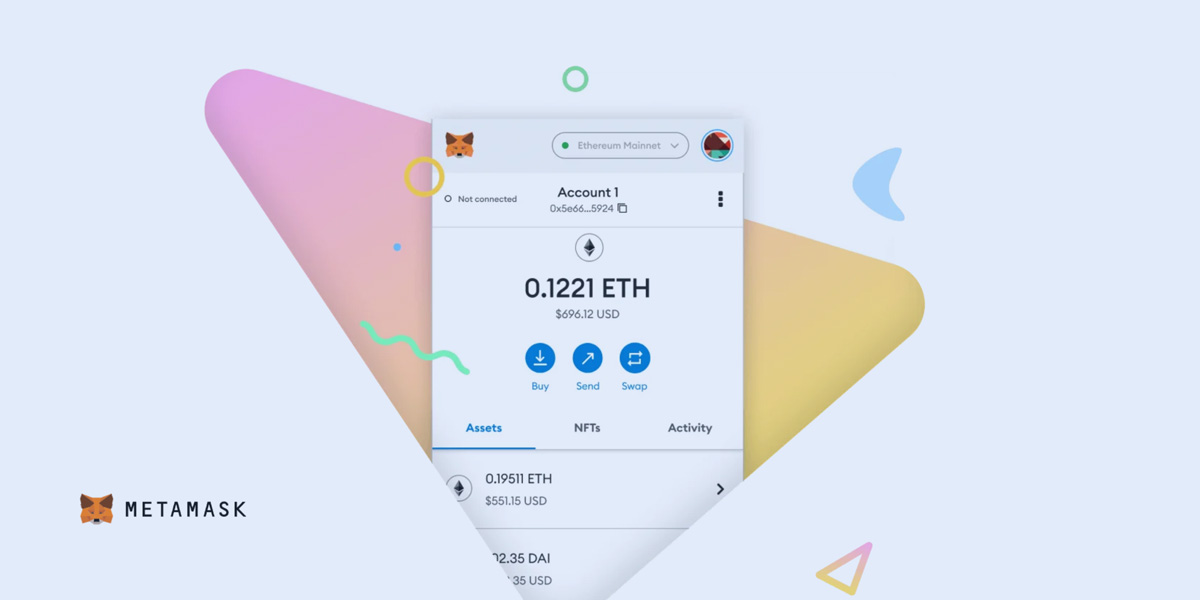
MetaMask has earned its reputation as the most popular DeFi wallet, and it’s not hard to see why. Most dApps in the crypto space recommend connecting with MetaMask.
This versatile wallet supports the management of Ethereum-based ERC20 and Binance Smart Chain-based BEP20 tokens and even reinforces layer-2 solutions like Polygon.
Available across various platforms, MetaMask can be accessed on iOS and Android smartphones or tablets, and through browser extensions on laptops or desktop computers. Major browsers like Brave, Chrome, and Firefox, including most hardware wallets, support this wallet, providing a seamless and hassle-free user experience.
But what sets MetaMask apart is its ease of use when familiar with crypto. It’s designed to make managing, sending, and receiving crypto tokens easy, even for those new to decentralized finance. With MetaMask, users can explore the exciting possibilities of DeFi without feeling overwhelmed.
In short, MetaMask is more than just a place to keep digital assets safe; it’s a gateway to the broader DeFi ecosystem. Whether for beginners or seasoned enthusiasts, MetaMask offers a secure and decentralized wallet experience that’s hard to beat.
Trust Wallet – Best Multichain Wallet
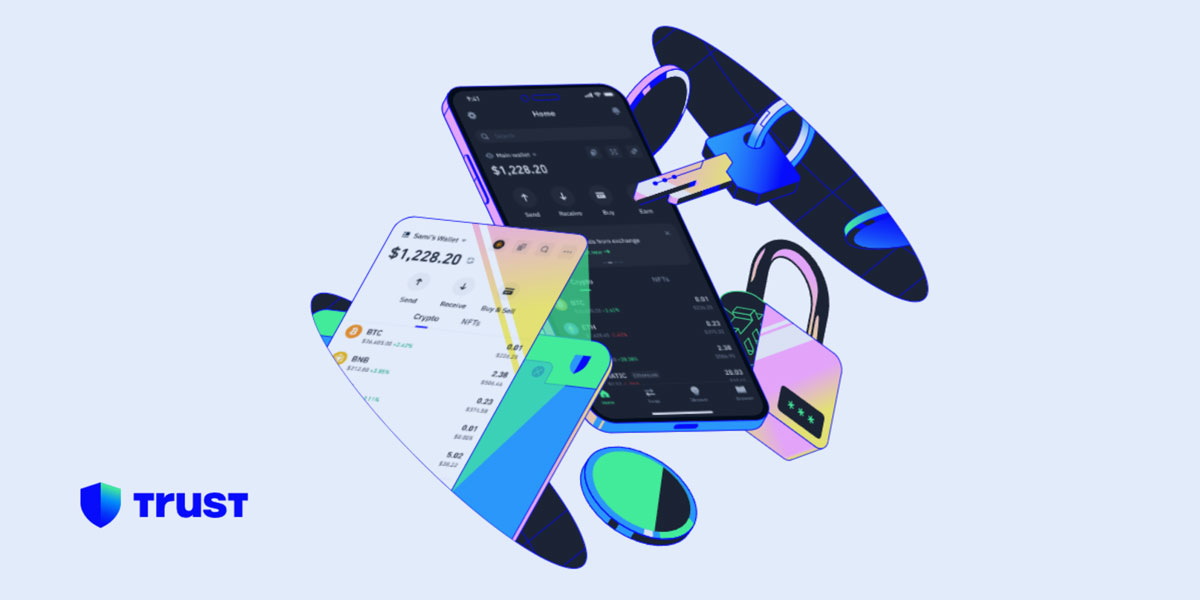
Trust Wallet stands out with its feature-packed design. Supporting a wide array of cryptocurrencies, it offers an easy-to-use interface that allows users to trade and store almost any digital asset across various blockchains.
One of Trust Wallet’s standout features is its compatibility with iOS and Android devices, as well as desktops and web browsers like Chrome and Brave. This flexibility ensures that users can access their funds and engage with decentralized apps (dApps) and blockchain games from virtually anywhere.
Security is a top priority for Trust Wallet, and advanced features are in place to keep information and data safe. Users can even back up their wallets with their Google account, adding an extra layer of protection against the potential loss of funds.
But Trust Wallet is more than just a secure place to store crypto. It’s a gateway to the broader world of decentralized finance. Users can purchase tokens across blockchains, including ERC20, invest directly through the wallet, and even access an integrated exchange system. This eliminates the need for increased gas fees and additional platforms, saving time and money.
Trust Wallet’s commitment to providing a seamless and secure decentralized wallet experience has filled a void left by other crypto wallets. Whether new to DeFi or a seasoned investor, Trust Wallet offers the convenience, security, and flexibility you need to take charge of your finances.
Trezor Wallet – Best Cold Wallet
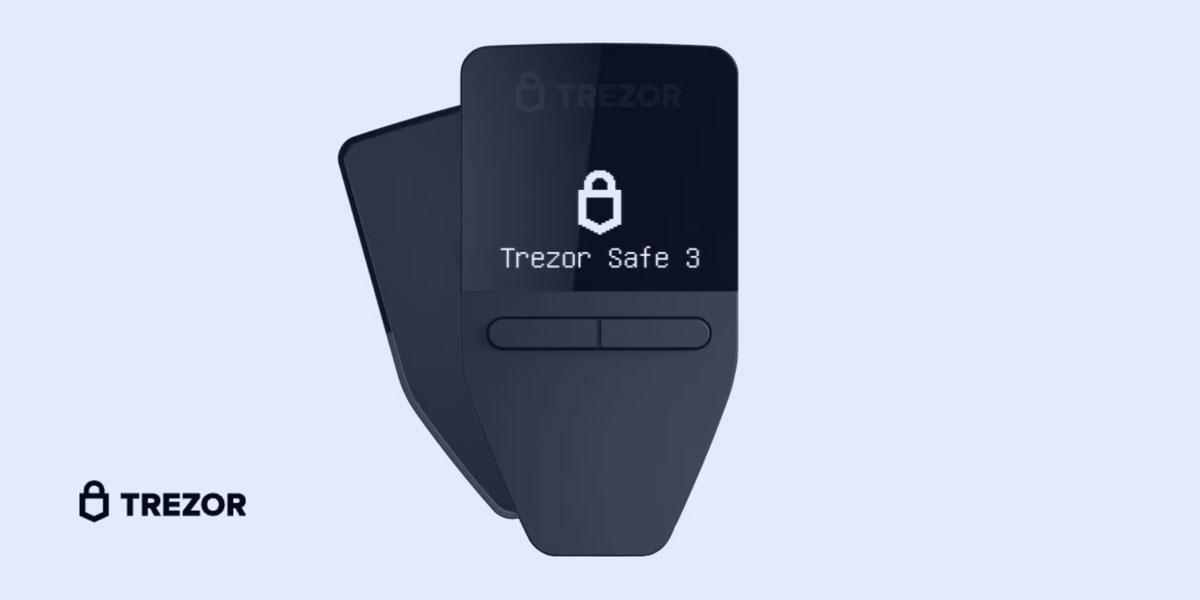
As a hardware wallet, Trezor supports a wide range of digital currencies, including Bitcoin and Ethereum, and integrates seamlessly with popular software wallets like MetaMask, Coinbase Wallet, and Eidoo.
What sets Trezor apart are its robust security features. From two-factor authentication to non-custodial cold storage and a unique PIN code system, Trezor ensures that digital assets are kept safe and secure. Plus, the PIN keypad’s order changes each time, adding an extra layer of protection against keyloggers.
Trezor wallet offers two models: the affordable Trezor One and the higher-end Trezor Model T. Both provide top-notch security for storing crypto offline, but the Model T takes it a step further with an easy-to-use touchscreen and compatibility with newer cryptocurrencies like Cardano and Monero. This adaptability makes the Model T a preferred choice for those looking to stay ahead in the ever-changing crypto landscape.
One of the standout features of Trezor wallets is their reliance on open-source coding. This approach not only enhances security by allowing more scrutiny for vulnerabilities but also ensures transparency, making it impossible to insert hidden backdoors.
Whether you choose the Trezor One or the Model T, they offer a secure decentralized wallet that offers cold storage solutions and a mobile app for tracking your portfolio on the go.
Argent Wallet – The Best DeFi Wallet for Beginners
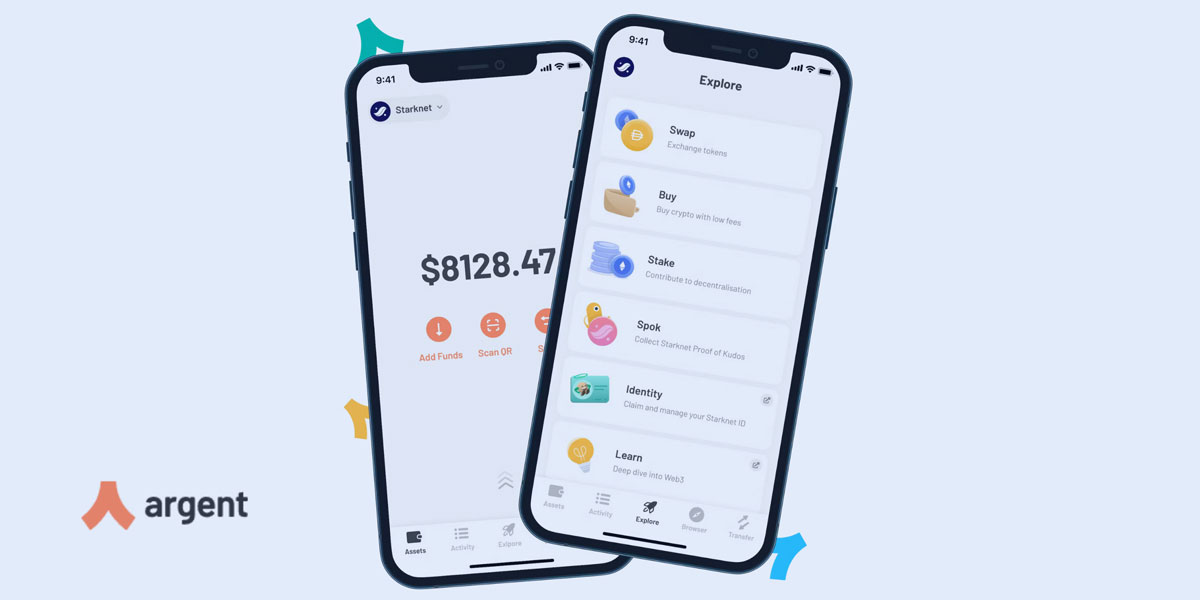
Argent Wallet is designed with a user-friendly interface and is available in over 25 languages, making it a go-to option for people all around the globe.
But Argent isn’t just about simplicity; it’s about security too. With features like biometric authentication and two-factor authentication, users can have peace of mind knowing their assets are safe. The Argent Vault, a special wallet with extra security features, is designed for those who want to store substantial amounts, adding another layer of protection.
One of Argent’s unique offerings is its integration with the StarkNet ecosystem through Argent X, a browser wallet that allows users to interact with decentralized applications. This feature showcases Argent’s commitment to staying at the forefront of technological advancements in the crypto space.
Argent also makes buying and transferring tokens a breeze. Whether it’s purchasing tokens with a debit or credit card or utilizing the human-readable address feature for easy transfers between Argent users, the wallet offers a range of functionalities.
Available for both iOS and Android devices, Argent Wallet is more than just a place to keep your crypto safe; it’s a gateway to the exciting world of decentralized finance. With its user-friendly design, robust security features, and innovative integrations like StarkNet, Argent is making the complex world of crypto more accessible and secure for everyone.
Ledger Hardware Wallet – The Best Hardware Wallet For Supported Crypto
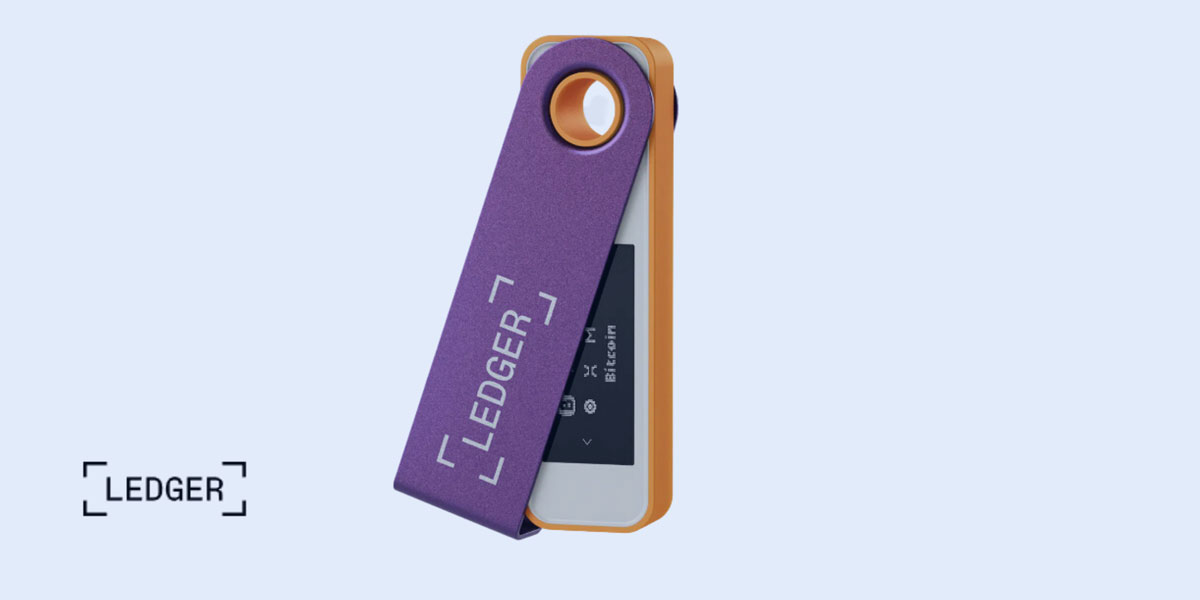
Ledger Hardware Wallets, the best hardware wallet, has been a trusted name in the crypto community since 2014. With its sleek design and robust security features, Ledger has become synonymous with secure decentralized wallet solutions.
One of the standout features of Ledger is its connectivity options. Premium models offer Bluetooth connectivity, making them compatible with mobile devices, while others use USB C. This flexibility ensures that users can manage their crypto assets on the go, whether through a mobile hot wallet or a desktop application.
Ledger’s support for over 5,500 cryptocurrencies is unrivalled, allowing users to store many digital assets.
The Ledger line includes two notable models: the Ledger Nano S and the more advanced Ledger Nano X. Both are compact, PIN-protected, and capable of storing various coins and tokens. The Nano X’s higher price tag brings additional features, such as more app installations and Bluetooth capability, enhancing its appeal to those who prefer mobile wallets.
While Ledger’s reputation took a hit in 2020 due to a database breach that leaked customer information, it’s essential to note that the incident did not compromise the wallets’ safety features. They remain a secure option for storing digital assets, though users are advised to take extra precautions when ordering, such as using a fake name and burner email address.
In a world where security is paramount, Ledger stands tall as a leader in hardware wallet solutions. Its innovative features, extensive crypto support, and unwavering commitment to security make it a top choice for anyone serious about safeguarding their digital wealth.
Coinbase Wallet – Best Exchange Wallet
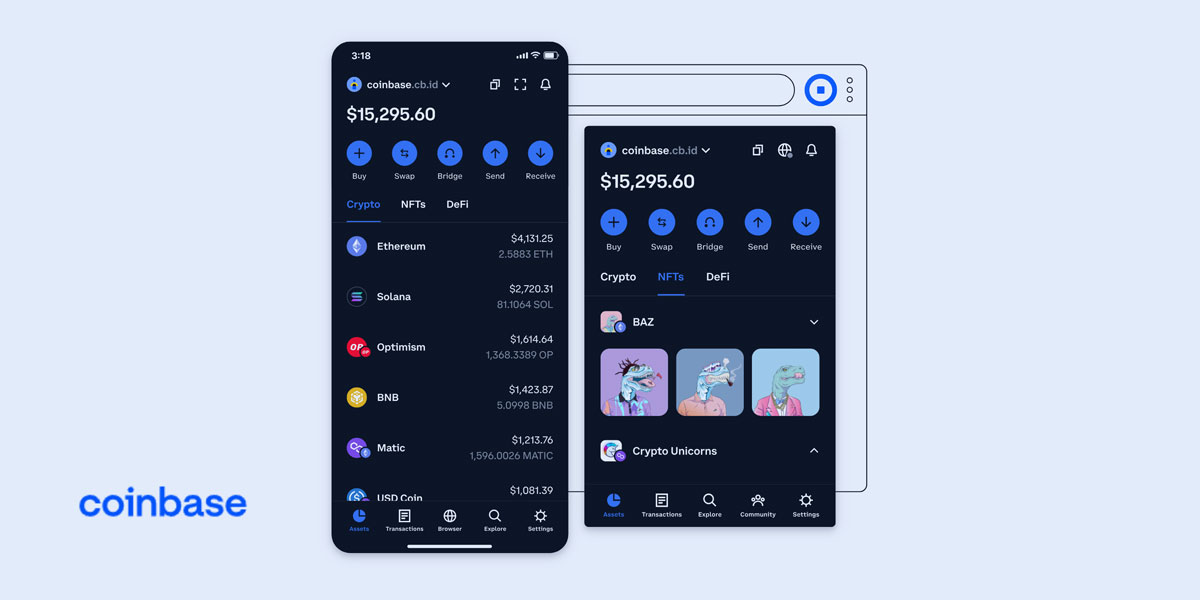
Coinbase Wallet, a non-custodial Web3 wallet, is a product of the centralized exchange giant Coinbase. Designed with user-friendliness, it’s an excellent choice for those new to the crypto world or those who trust the well-known Coinbase brand.
One of the standout features of Coinbase Wallet is its ease of transferring crypto. Unlike traditional methods that require a long hexadecimal code, Coinbase Wallet allows users to “pay friends, not addresses.” This means funds can be sent simply by typing in a username, a feature that significantly simplifies the process for newcomers.
The wallet offers seamless integration with Coinbase.com accounts, providing a smooth pathway to explore DeFi. While the native Coinbase.com wallet is a platform for buying, selling, and on-ramping crypto from fiat, the separate Coinbase Wallet opens doors to decentralized finance apps and exchanges, independent of Coinbase’s centralized control.
Security is a priority for Coinbase Wallet, with mandatory features like a six-digit PIN or biometric security like facial recognition. These layers of protection are crucial for users who may not fully understand the importance of safeguarding their digital assets.
The Coinbase Wallet is not just confined to Ethereum and its compatible networks like Arbitrum and Polygon; it also extends support to other popular cryptocurrencies like Bitcoin, Dogecoin, and Litecoin through its mobile wallet app. Furthermore, the wallet’s Chrome extension and compatibility with popular DeFi apps make connections effortless and versatile.
Coinbase Wallet is a secure wallet that bridges the gap between traditional crypto handling and the burgeoning world of decentralized finance. Its user-friendly interface, robust security features, and broad compatibility make it a top choice for beginners and seasoned crypto enthusiasts.
Other DeFi wallets to consider
Guarda Wallet
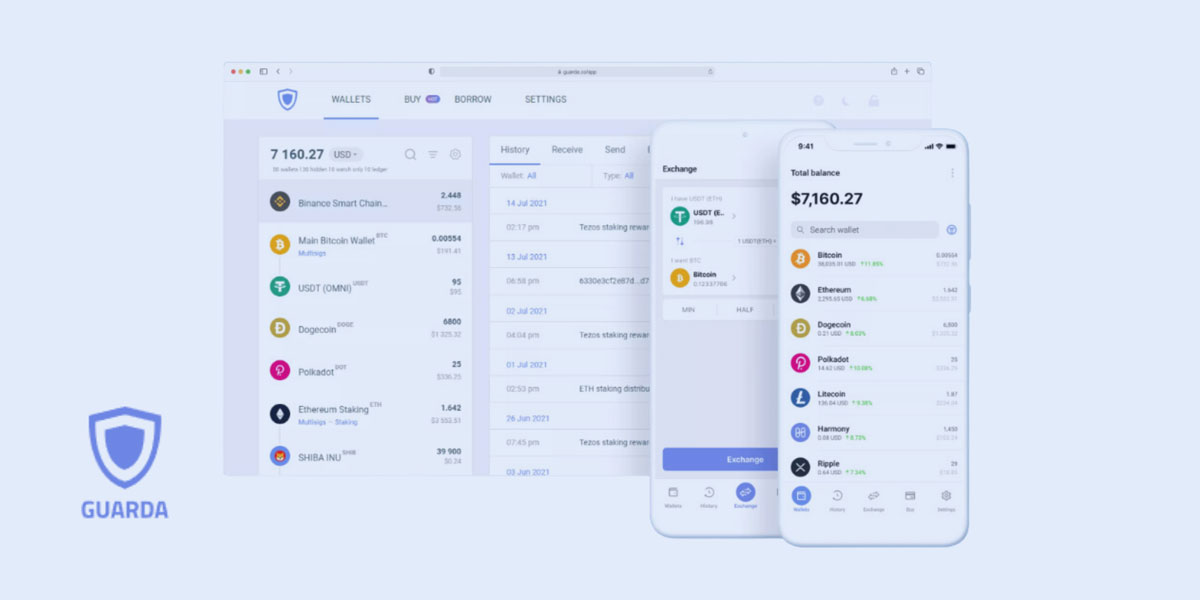
Guarda Wallet stands out as a secure and user-friendly DeFi crypto wallet, supporting diverse digital currencies such as Ethereum, Bitcoin, and Litecoin. With its in-wallet exchange feature, users can effortlessly swap between digital currencies. Guarda’s robust security measures, including multi-step verification, two-factor authentication, and a backup recovery phrase, make it a reliable choice for crypto enthusiasts.
Zengo Wallet
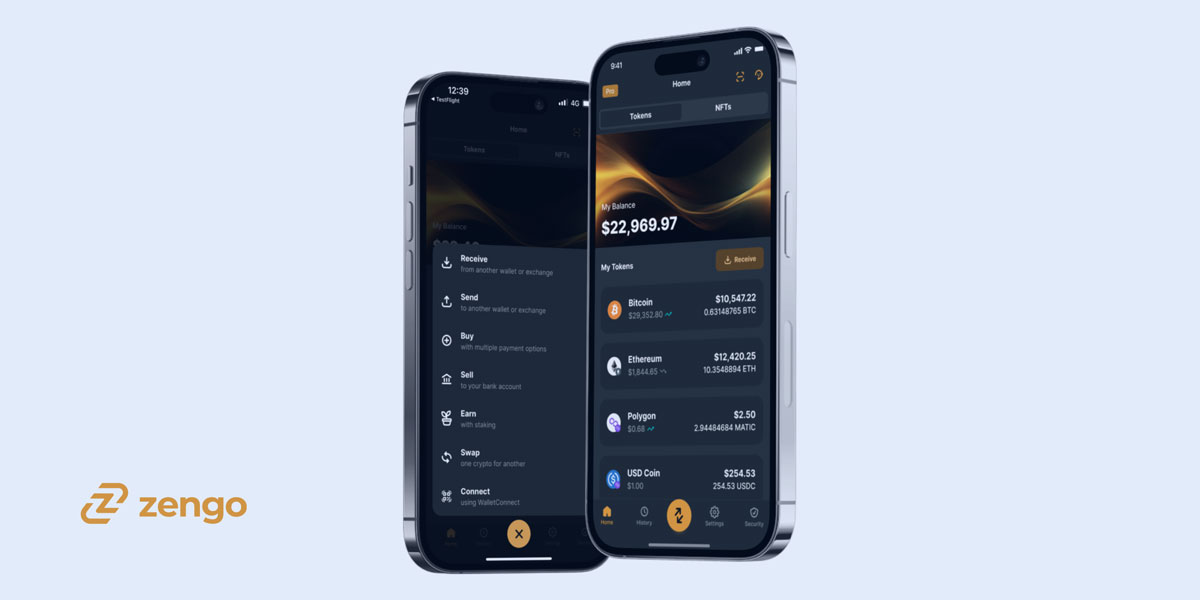
Zengo Wallet, available on Android and iOS, is celebrated for its innovative security mechanisms, including a unique two-key system and MPC cryptography as part of its 3-Factor Authentication. While offering robust protection against hacking, it does require users to trust the wallet with part of their encryption key, making it partially non-custodial. Zengo’s versatility, user-friendly interface, and built-in firewall add to its appeal, though its desktop limitations and restricted selling options (only Ethereum as of February 2023) are worth noting.
Eidoo Wallet
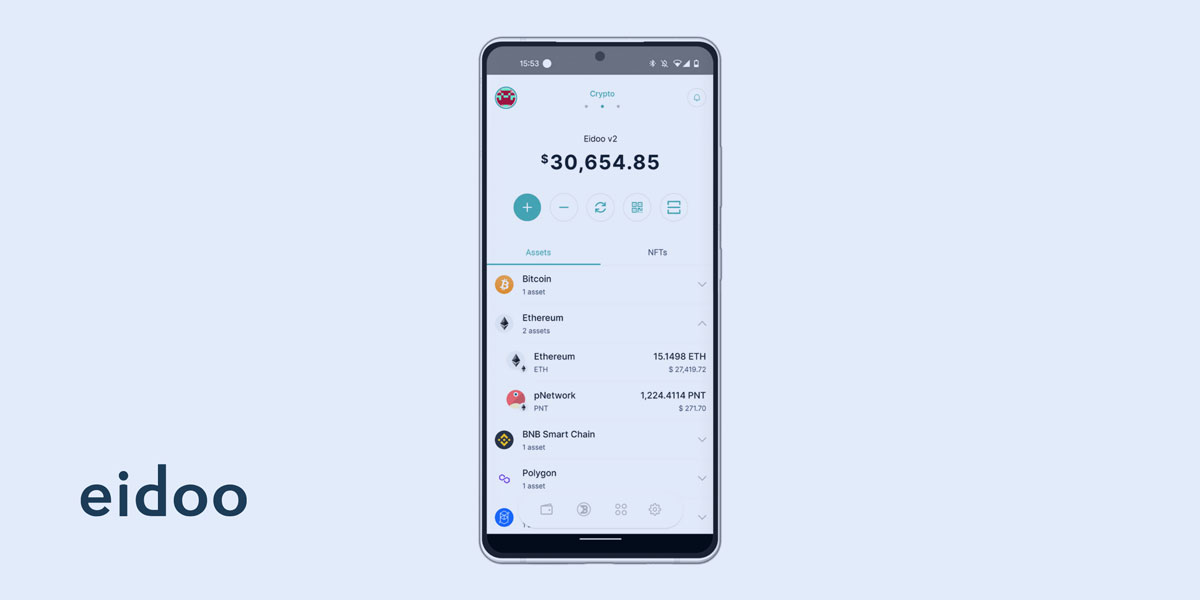
Eidoo Wallet, a popular DeFi wallet, offers a seamless experience across mobile and desktop platforms. Known for high-speed transactions and vast integration with dApps like OpenSea, pNetwork, and UNISWAP, Eidoo provides easy access to DeFi products and robust security features. It’s user-friendly interface and unique widgets, constantly updating users about crypto changes, set it apart in the ecosystem.
Edge Wallet
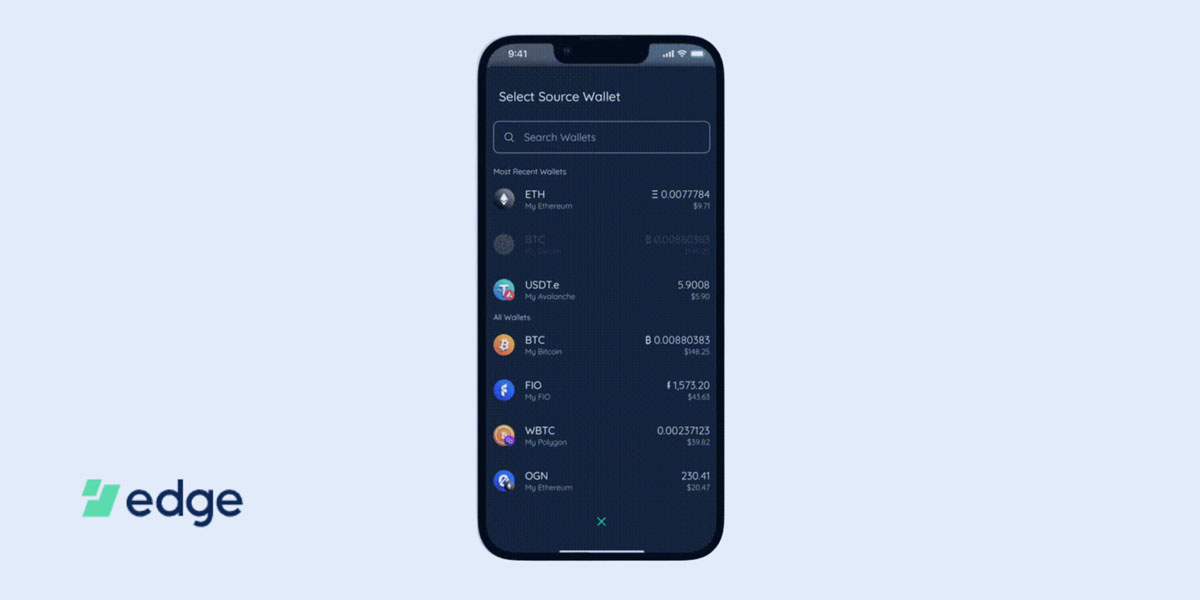
Edge Wallet, a multi-platform solution available on iOS, Android, Windows, Mac, and as a Google Chrome extension, offers a unified place to store cryptocurrencies. As a top DeFi crypto wallet, Edge provides storage and facilitates decentralized finance products like lending and staking. By supporting Ethereum-based ERC20 tokens and protocols, Edge ensures quick transactions and convenient access to decentralized applications.
CoinPayments Custodial Wallet Solution
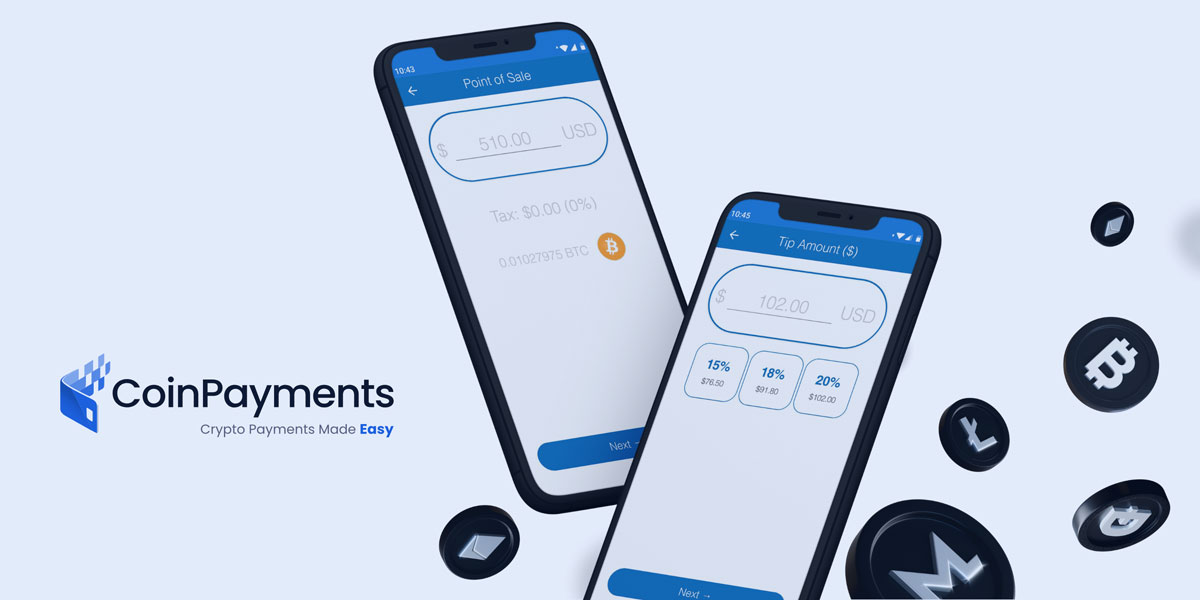
The world of DeFi and non-custodial wallets is undoubtedly thrilling, offering control and freedom like never before. However, navigating it can also be complex, especially for those new to the crypto space.
For those who find the intricacies of DeFi overwhelming or are concerned about managing private keys, there’s a simpler and more accessible path: CoinPayments.
CoinPayments, a trusted name with 10+ years in business, offers a custodial wallet that removes some of the complexities associated with DeFi. With the ability to store, send, and receive more than 2000+ crypto assets, CoinPayments provides a user-friendly gateway to the vast world of cryptocurrencies.
Set up your free wallet today.











